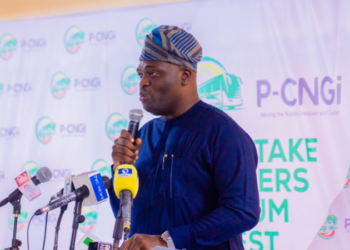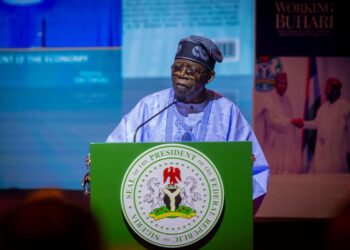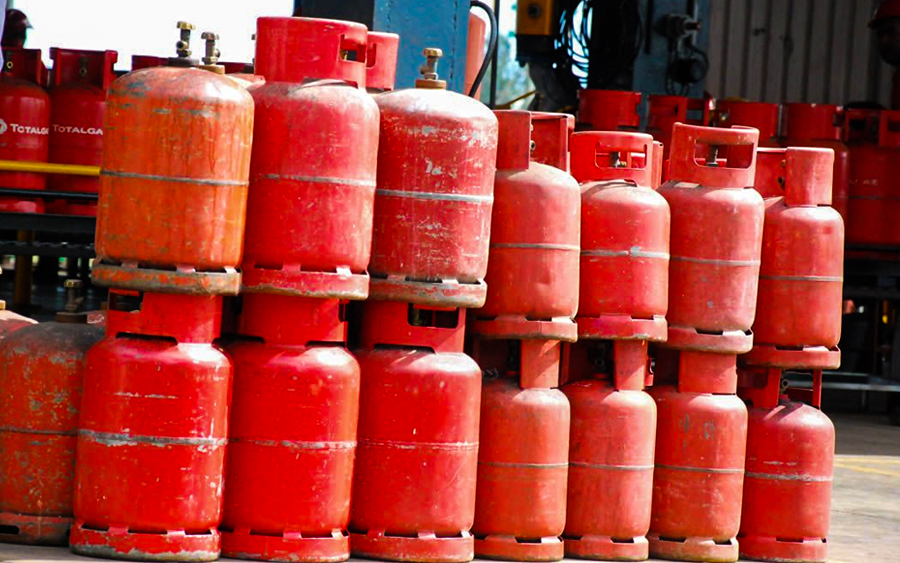- President Bola Ahmed Tinubu has issued instructions on the functioning of the Nigerian Upstream Petroleum Regulatory Commission (NUPRC) and the Nigerian Midstream and Downstream Petroleum Regulatory Authority (NMDPRA).
- The president expressed concerns about ambiguous and overlapping regulatory scope caused by certain provisions of the Petroleum Industry Act (PIA).
- Conflicting directives given to lease/license holders have created uncertainty in Nigeria’s oil and gas sector, prompting President Tinubu to provide specific directives to ensure a conducive operating and investment climate until the PIA is clarified.
President Bola Ahmed Tinubu has provided instructions on the operations of the Nigerian Upstream Petroleum Regulatory Commission (NUPRC) and the Nigerian Midstream and Downstream Petroleum Regulatory Authority (NMDPRA).
In a letter dated June 26, the president addressed the Permanent Secretary at the Ministry of Justice, expressing concern over certain provisions of the Petroleum Industry Act (PIA) that have unintentionally caused confusion and overlapping regulatory responsibilities. According to him, the conflicting directives given to lease/license holders have resulted in uncertainty within Nigeria’s oil and gas sector.
In the letter, President Tinubu outlined specific directives for both regulators aimed at creating a favourable operational and investment environment until the necessary amendments are made to clarify the PIA.
The directives are:
Nigerian Upstream Petroleum Regulatory Commission (NUPRC)
NUPRC shall be the exclusive technical and commercial regulator in respect of upstream petroleum operations and facilities. This responsibility encompasses the licensing, administration, and monitoring of petroleum facilities that are operationally linked from extraction to and including crude export terminals and the gate of the natural gas processing plant.
- In accordance with Section 318 of the PIA, integrated upstream and midstream petroleum operations shall be considered as upstream petroleum operations. Consequently, pursuant to Section 8(d) of the PIA, NUPRC shall have sole jurisdiction over the technical and commercial regulation of integrated petroleum facilities for upstream petroleum operations.
- The determination of whether petroleum facilities qualify as integrated facilities shall rest solely with NUPRC. Clear guidelines and criteria shall be established by NUPRC to ascertain the integration status of facilities and ensure consistent application of these criteria.
Nigerian Midstream and Downstream Petroleum Regulatory Authority (NMDPRA)
NMDPRA shall be the exclusive technical and commercial regulator in respect of petroleum operations and facilities from the exit of the crude export terminals and the entry gate of the natural gas processing plant.
Immediate compliance
In his letter, President Tinubu said NUPRC and NMDPRA officials shall immediately comply with the directives and must ensure that no duplication of regulatory responsibilities occurs across any activity. He advised both regulators to refrain from overlapping regulatory functions in relation to activities leading up to and including export terminal operations.
The President also stated that his directives have implications for staff deployment and the financial sustainability of NMDPRA. So, the Authority Chief Executive of the NMDPRA, the Commission Chief Executive of the NUPRC as well as the Special Adviser to the President on Energy, under the auspices of the Chief of Staff to the President, will work out the modalities and proffer solutions, including potential amendments to the PIA.
What led to this
Following a conversation with Nairametrics, a source with knowledge of the matter explained that during the drafting of the Petroleum Industry Bill (PIB), the original plan was to establish a single regulatory body like the Department of Petroleum Resources (DPR) at that time.
However, due to understaffing challenges at the DPR, especially overseeing a sprawling industry, the National Assembly decided to adopt two regulatory bodies to oversee the upstream, midstream, and downstream sectors to streamline operations.
Industry stakeholders initially pushed back as they feared having multiple regulatory agencies that might lead to increased bureaucracy, higher operating costs, and other challenges associated with reporting to multiple agencies. However, the years of delay in passing the bill left sceptical stakeholders with no choice but to accept a watered-down and imperfect version of the bill if it would move the sector forward.
But as initially feared, since the passage of the PIA in 2021, operators have encountered regulatory overlaps between the two regulators often leading to confusion over which agency handles what. In addition, by law, the regulatory agencies are self-funded, thus fueling the need to regulate as many companies as possible.
Both agencies collect approximately 4% of the revenues they generate, which insiders opine is inadequate to fund operations. This and many more have led to a potpourri of regulatory nightmares for industry operators and stakeholders.
The prioritization of personal interests over the development of the oil and gas sector calls for a clear and well-defined structure of oil and gas regulation in the country, which is crucial for advancing the energy business.
What the law says
Lawyer and energy policy analyst Peter Okediya told Nairametrics that presidential directives hold legal validity if they align with applicable Acts and do not violate the Constitution. He explained that under the Petroleum Industry Act (PIA), mandatory consultation and review procedures are prescribed for the Authority and the Commission.
According to Okediya, the government must consult with these bodies before issuing directives, which will then be thoroughly reviewed by the respective entities. The outcome of the review process will guide compliance and implementation of the directives, ensuring a transparent and procedural decision-making approach.
However, another legal practitioner who pled anonymity, mentioned that the president’s actions are a reorganization of the regulators, as they are ultimately accountable to him. He emphasized that an Executive Order or presidential directive cannot supersede an Act of Parliament, as the PIA would need to be amended to accommodate the president’s request.





















This adjustment is long overdue even though it ought to have been clearly defined before the PIA comes to operational.